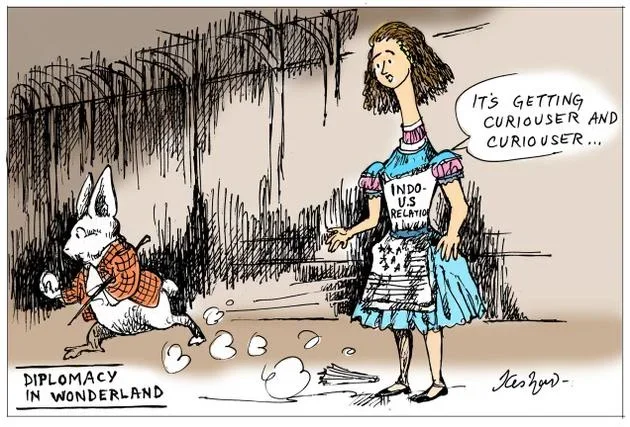prasad1
Active member
Why?
The US Embassy has since long hosted full-scale commercial facilities within its compound which include the sale and service establishment that are open not only to non-US diplomats from third countries but to non-diplomatic personnel as well.
"This is a misuse of diplomatic privilege that is not extended by the US to others in their country", sources said.
There is a view in the government that US diplomats at the Embassy in New Delhi and in their Consulates in other cities in India have always enjoyed a high degree of non-reciprocal privileges and facilitation. These include tax-free treatment of their nationals working in the American Embassy school in New Delhi, extra privileges and immunities for their consulate officials at their Consulates in Calcutta, Mumbai, Chennai and Hyderabad, approvals for extra staffing, including the deputation of short-term "extra staff" for deployment in the Embassy which are usually extended repeatedly and become regular one to two year postings effectively. There was no immediate response from the US Embassy here in this regard.
The US Embassy has since long hosted full-scale commercial facilities within its compound which include the sale and service establishment that are open not only to non-US diplomats from third countries but to non-diplomatic personnel as well.
"This is a misuse of diplomatic privilege that is not extended by the US to others in their country", sources said.
There is a view in the government that US diplomats at the Embassy in New Delhi and in their Consulates in other cities in India have always enjoyed a high degree of non-reciprocal privileges and facilitation. These include tax-free treatment of their nationals working in the American Embassy school in New Delhi, extra privileges and immunities for their consulate officials at their Consulates in Calcutta, Mumbai, Chennai and Hyderabad, approvals for extra staffing, including the deputation of short-term "extra staff" for deployment in the Embassy which are usually extended repeatedly and become regular one to two year postings effectively. There was no immediate response from the US Embassy here in this regard.

